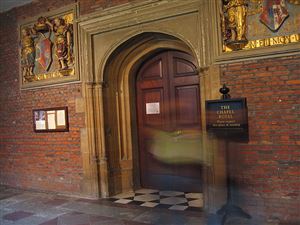What is a tenancy agreement?

Do we need to read the small print when we sign tenancy agreements? How can they differ? And are we signing our life away?
What is a tenancy agreement?
This is a legal document between you the tenant and the landlord who rents out a property, which details the contract between you. These are known as an assured short-hold tenancy. It is very important to read this document carefully as once it is signed by you and the landlord it becomes a legally binding agreement. Although this is a two way street and it means your landlord will have obligations to you too, tenancy agreements can vary greatly. These can seriously affect you and your responsibilities as a tenant. So watch out!
However although tenancy agreements vary, there are some key clauses that need to be in your tenancy agreement by law. It is vital for you and your rights as a tenant to make sure they are in your agreement before you sign on the dotted line.
What needs to be in a tenancy agreement?
The rent
An obvious one we know but make sure it's in there so you know exactly how much you need to pay. When you need to pay such as monthly or per term if you're a student, and how it is to be paid. Most landlords will ask that you set up a standing order.
The deposit
Within your tenancy agreement your deposit needs to be specified. How much you'll need to pay and most importantly, what deposit protection scheme it will be held in. For more information on this check out our article on protecting your deposit.
Date of the contract
Usually the day when your tenancy begins and the date from which you'll need to start paying rent. It will also specify the length of the contract, most tend to be for a six month period or yearly but you can easily renew if you want to stay and the landlord is happy for you to do so.
The property
Details the fixtures and fittings such as what comes with the house, and can include details of outside space if there is any.
Possession and notices
This is an important clause for you as a tenant and details how much notice you are required to give if you want to leave the property before your agreement expires and also how the landlord is able to regain possession of their property.
Inventory
This will detail the condition of the property and is very important as if the landlord feels you have let the property fall into a bad state they can keep your deposit based on the inventory.
Fair wear and tear
Another important clause that states the tenant is not liable for reasonable deterioration of areas such as carpets and walls.
Tenants obligations
This details what is expected of you as stated by the landlord. What you can and can't do such as having a pet, not smoking indoors. These can vary so be sure to check what yours are. It also tells the tenant what to do when there is a problem in the flat and when they should inform the landlord of any problems which need immediate attention such as leaks and damp.
Signatures
This is yours and your landlords signatures and once signed the agreement becomes binding for both parties.
What if the tenancy agreement isn't fair?
If you're not happy with your tenancy agreement, don't sign it. You are well within your rights to negotiate your terms if you feel they are unfair or lacking. Landlords hate having an empty property as it can easily fall into disrepair as well lose money in lost rent. They will want their property occupied just as much as you want to find somewhere to live and should be willing to negotiate with you.
If your landlord is unwilling to do this then it might be a good idea to look for another property as it is very important to have a fair landlord.



